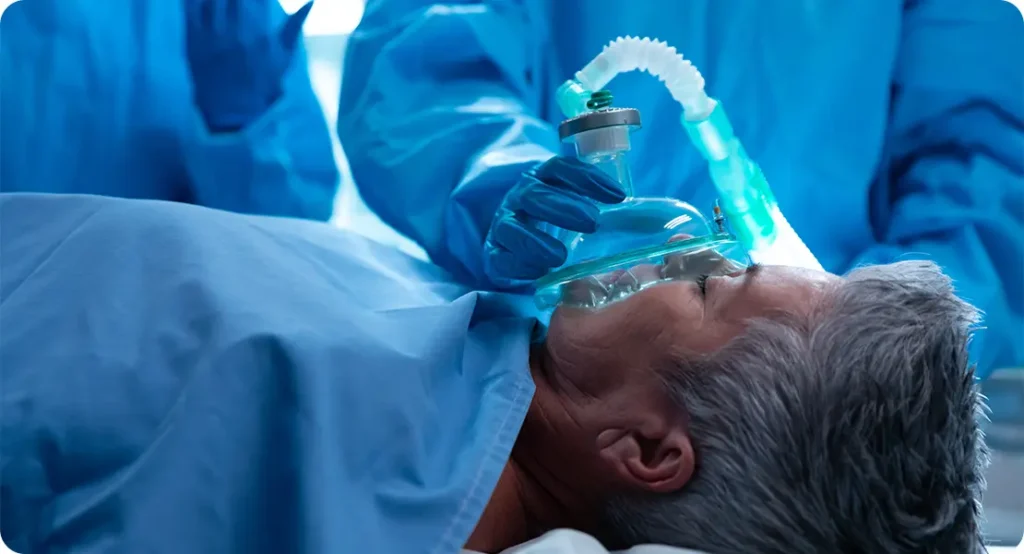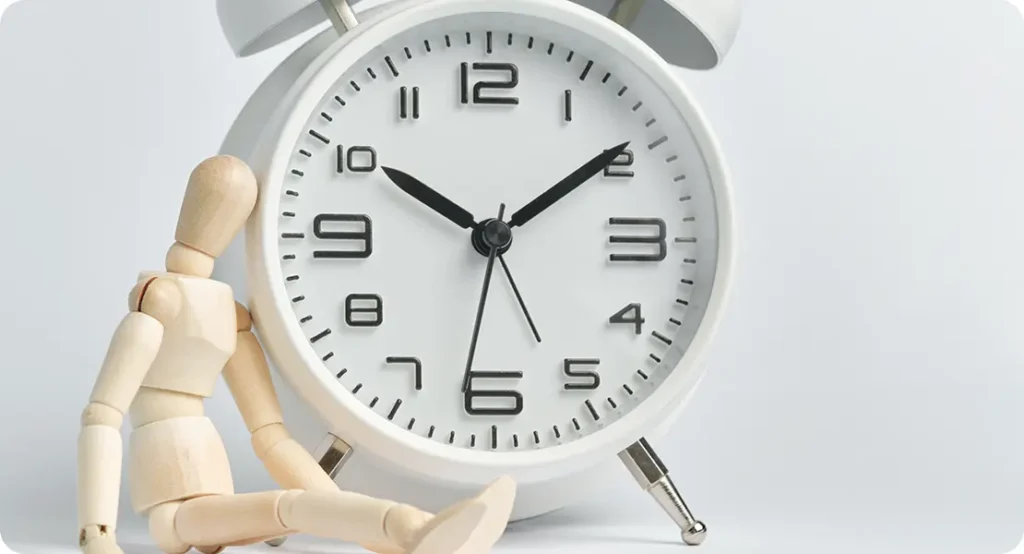We often talk about cataract surgery in terms of lenses, laser precision, or anaesthesia options. But here’s something a little less obvious — does it actually matter what time of day your cataract operation is performed? Could a 9am slot offer a different result from a 3pm one?
You might be surprised to learn that researchers have started looking into exactly this question. There’s growing interest in the body’s internal clock — your circadian rhythm — and how it could influence wound healing, immune response, and even complication risk during surgery.
In this article, we’ll take a deep dive into the science behind timing, biology, and cataract surgery outcomes. You’ll discover what researchers have uncovered, how it might impact your choices, and whether you should aim for an early-morning slot or not.
Understanding Circadian Rhythms: Your Internal Clock
Let’s start by understanding what circadian rhythms actually are. Essentially, they’re 24-hour cycles built into your biology — like an internal clock that affects almost every cell in your body. These rhythms are most famous for regulating sleep and alertness, but they also influence hormone release, body temperature, and immune function.
Your circadian rhythm is controlled by a part of your brain called the suprachiasmatic nucleus (SCN), which responds to light and dark signals. But it doesn’t stop there — organs like your liver, skin, and even your eyes have their own clocks.
This means your body isn’t doing the same thing at 8am as it is at 4pm — not even close. That matters when it comes to healing from surgery, particularly something as delicate as cataract removal.
Wound Healing and the Circadian Cycle
Here’s where things get really interesting. Several studies in the field of chronobiology (the science of biological rhythms) have shown that wound healing is not constant throughout the day. In fact, cells involved in repair — such as fibroblasts and keratinocytes — are more active at certain times.
For example, research from the University of Cambridge found that wounds incurred during the day healed 60% faster than those at night. The study, published in Science Translational Medicine, showed that skin cells had a stronger migratory and regenerative capacity in the morning and early afternoon compared to the evening.
If we apply that logic to cataract surgery — which involves microscopic incisions in the cornea — you might reasonably wonder whether morning operations heal more quickly or with fewer complications.
Immune Function and Inflammation Across the Day
Surgery causes inflammation — it’s a natural part of the healing process. But your body’s inflammatory response isn’t static either. Cytokines (proteins that signal the immune system) fluctuate depending on the time of day.
Morning hours typically see a more moderate inflammatory response, whereas cytokine levels tend to spike in the evening. This could potentially affect how your eye reacts after cataract surgery. Too little inflammation can impair healing. Too much can cause pain, swelling, and even complications like cystoid macular oedema.
So, if your body is more likely to “overreact” in the afternoon or evening, it’s worth considering whether a morning appointment might lead to a smoother recovery.
Circadian Rhythms in the Eye Itself
We often forget that the eye is an organ with its own biological rhythms. The retina, cornea, and lens cells all exhibit circadian patterns in gene expression, hormone responsiveness, and metabolic activity.
Melatonin, the sleep hormone, also affects intraocular pressure and may influence visual sensitivity. These circadian patterns might alter how the eye reacts to trauma, such as surgery, depending on the time of day.
While most research has focused on retinal conditions or glaucoma in this context, it stands to reason that the timing of surgery could affect tissue response and resilience at the ocular level.
What Does the Research Say About Surgical Timing and Outcomes?
So far, we’ve covered the theoretical basis for why time of day could matter. But what does the research actually show when it comes to cataract surgery?
A 2020 study published in the Journal of Cataract and Refractive Surgery examined complication rates in over 10,000 cataract procedures. It found a modest but statistically significant increase in posterior capsule rupture rates in cases performed later in the day — especially after 3pm.
The researchers suggested that both surgeon fatigue and circadian influences could play a role. While fatigue is an understandable factor, the body’s biology may also contribute. In other words, it’s not just the surgeon’s energy levels — it might also be your eye’s reduced capacity for handling trauma as the day progresses.
Another smaller study conducted in India looked at the endothelial cell loss after cataract surgery in different time slots. They reported slightly lower cell loss in surgeries performed before noon compared to those in the afternoon, suggesting better corneal preservation earlier in the day.
The Role of Anaesthesia and Sedation

Timing may also influence how you respond to anaesthesia or sedation. Most cataract surgeries in the UK are performed using topical or local anaesthesia, but in some cases, sedation is added.
Your responsiveness to sedatives like midazolam can change across the day, partly due to liver enzyme activity governed by circadian rhythm. Some patients metabolise these drugs more slowly in the evening, which could lead to longer recovery or unwanted grogginess.
Similarly, intraocular pressure (IOP) fluctuates during the day, typically peaking in the morning and dipping in the evening. If your IOP is higher at the time of surgery, it may slightly alter how the surgeon performs certain steps, such as lens insertion.
Could Surgeon Performance Be Affected Too?
Let’s be honest — cataract surgeons are humans, not machines. And like all of us, they are subject to variations in mental alertness and physical dexterity across the day.
One study published in BMJ Open in 2021 looked at operating theatre outcomes in multiple surgical fields across NHS hospitals. They found that surgeries starting after 3pm were associated with a small but measurable increase in complication rates, especially in elective procedures.
Fatigue, reduced focus, and even staff turnover in the afternoon could contribute to this. In the context of cataract surgery, where precision is critical, these small differences may influence outcome quality — particularly when it comes to refractive accuracy and astigmatism control.
Are There Any Studies Saying the Time Doesn’t Matter?
To be balanced, not all studies show a strong link between time of surgery and outcome. A 2022 meta-analysis from the American Journal of Ophthalmology reviewed nine trials comparing morning versus afternoon cataract operations. The pooled results showed no major differences in visual acuity outcomes or complication rates — although the authors noted that individual variability and surgical setting might influence results more than timing.
In practical terms, it means that while time of day might nudge outcomes in one direction or another, it’s unlikely to be the deciding factor for most people. Surgeon experience, intraoperative technique, and pre-existing eye conditions remain the primary drivers of success.
Should You Request a Morning Slot?
You might be wondering — should you now go out of your way to ask for the earliest possible appointment?
Not necessarily, but it might make sense if:
- You’re a diabetic or have metabolic syndrome (as healing and inflammatory cycles can be more erratic)
- You have anxiety and prefer to get surgery out of the way early in the day
- You’re having complex cataract surgery or are at higher risk of complications
- You have a long travel distance and want to avoid late-night recovery
It’s also worth noting that your own circadian rhythm — your chronotype — may affect how well you tolerate surgery at different times. If you’re a natural early riser (“lark”), you might recover better from a morning operation. If you’re a night owl, early afternoon might suit you better.
Practical Tips to Optimise Your Outcome
Regardless of what time your surgery is booked, there are things you can do to support your recovery and reduce complications:
- Stick to your usual sleep routine the night before. Disrupted sleep may impact your immune response.
- Avoid caffeine or heavy meals before the procedure — especially if you’re sensitive to fluctuations in blood pressure or glucose.
- Take your prescribed drops exactly as instructed before and after surgery.
- Plan for post-op rest, especially if your surgery is in the afternoon, as you’ll have less recovery time before bedtime.
These small steps, combined with selecting an experienced surgeon, often make more difference than the hour on the clock.
The Verdict: Does Time of Day Really Matter?

In short: maybe — but only slightly.
There’s some fascinating research showing that your biology changes across the day, and that includes the cells involved in wound healing and inflammation. Morning operations might have a slight edge in terms of recovery time, reduced cell damage, and lower complication risk — but we’re talking about marginal gains, not game-changers.
The overwhelming majority of cataract surgeries are safe, effective, and complication-free — whether you’re first on the list or last.
So unless your surgeon recommends otherwise, you can feel confident booking a time that suits your schedule, your stress levels, and your sleep habits. But if you do have the choice of a morning slot? It might just give you a subtle biological boost.
FAQs: Does Time of Day Affect Cataract Surgery Outcomes?
- Does research really show better results if I have surgery in the morning?
Yes — some studies suggest that morning surgeries may be associated with slightly better outcomes, including faster wound healing and lower rates of intraoperative complications. This is thought to be due to the body’s circadian rhythm, which supports better tissue repair and immune modulation earlier in the day. That said, the differences are modest and should be weighed alongside other factors like surgeon experience and your personal comfort. - Is my eye more sensitive to surgery at certain times of day?
Your eye, like the rest of your body, follows a biological clock. Corneal and retinal cells behave differently depending on the time of day, affecting things like intraocular pressure and cellular repair activity. While these fluctuations are generally mild, they may influence how your eye responds to surgical trauma and recovers afterwards. - Can time of day affect how I react to anaesthesia?
Yes, circadian rhythms can influence how your body processes anaesthetic drugs. Your liver’s ability to metabolise medication, as well as your nervous system’s sensitivity, can vary between morning and evening. For some patients, this means quicker recovery from sedation earlier in the day, though it’s rarely a critical factor in eye surgery where anaesthesia is often minimal. - Is the surgeon’s performance different in the afternoon?
Fatigue can affect surgeon performance — just like in any other profession. NHS studies across multiple specialties have shown a slight uptick in surgical complications later in the day. In cataract surgery, where precision is key, even small changes in concentration or steadiness might matter. However, high-volume surgeons are trained to maintain consistency across their theatre lists. - Do people with certain health conditions benefit more from morning surgeries?
Yes. If you have diabetes, immune disorders, or poor wound healing capacity, opting for an early slot may provide a subtle advantage. These conditions can already disrupt normal circadian responses, so aligning surgery with the body’s natural healing peak (typically morning to early afternoon) might aid recovery. - What if the only available slot is in the afternoon — should I be concerned?
Not at all. Cataract surgery is one of the safest procedures in modern medicine, and excellent outcomes are achieved regardless of the hour. While there may be small advantages to morning surgery, afternoon slots are still entirely appropriate and safe — especially in skilled hands. - Should I adjust my daily routine before surgery to optimise results?
It’s wise to maintain a regular sleep schedule in the days leading up to your operation. Being well-rested supports your immune system and reduces anxiety. Avoid excessive caffeine and follow any fasting instructions from your clinic. The smoother your pre-op preparation, the more favourable your experience — no matter what time you’re scheduled.
Final Thoughts
This is one of those topics where science and medicine meet human rhythms in a really interesting way. While timing won’t make or break your cataract surgery outcome, it’s yet another example of how personalised care — right down to the hour of the day — might one day shape the way we deliver better results.
In the end, the best outcomes still come from careful pre-op planning, expert technique, and good aftercare. Whether you’re first on the list or last, you’re in safe hands when you choose a centre known for precision and experience. If you’re considering private cataract surgery, it’s worth discussing not just your lens options, but also your preferred time of day with your surgeon — especially if you have specific health needs or recovery concerns.
Who knew your body clock could have a little say in it, too?
References
- Hoyle, N. P. et al., 2017. Circadian actin dynamics drive rhythmic fibroblast mobilization during wound healing. Science Translational Medicine, 9(415), eaal2774.
Available at: https://www.science.org/doi/10.1126/scitranslmed.aal2774 [Accessed 13 June 2025]. - Babu, N., Venugopal, A. & Das, D., 2023. A comparative study on the phaco time and corneal endothelial changes after cataract surgery. Indian Journal of Ophthalmology – Clinical & Experimental, published online Apr 2023.
Available at: https://www.ijceo.org/html-article/22958 [Accessed 13 June 2025]. - Glasbey, J. C. et al., 2021. Daytime variation in non‑cardiac surgery impacts recovery after general anaesthesia. PMC, published Sep 2022.
Available at: https://pmc.ncbi.nlm.nih.gov/articles/PMC10035960/ [Accessed 13 June 2025]. - Chassard, D. et al., 2007. Chronobiology and anaesthesia. Current Opinion in Anaesthesiology, 20(3), pp.186–190.
Available at: https://pubmed.ncbi.nlm.nih.gov/17479018/ [Accessed 13 June 2025]. - Chessman, J. et al., 2016. How does general anaesthesia affect the circadian clock? Sleep Medicine Reviews, 37, pp.3–11.
Available at: https://pubmed.ncbi.nlm.nih.gov/28162920/ [Accessed 13 June 2025].

